Identity, Discrimination, and Feelings of Safety among Vulnerable Residents in Corinth Refugee Camp
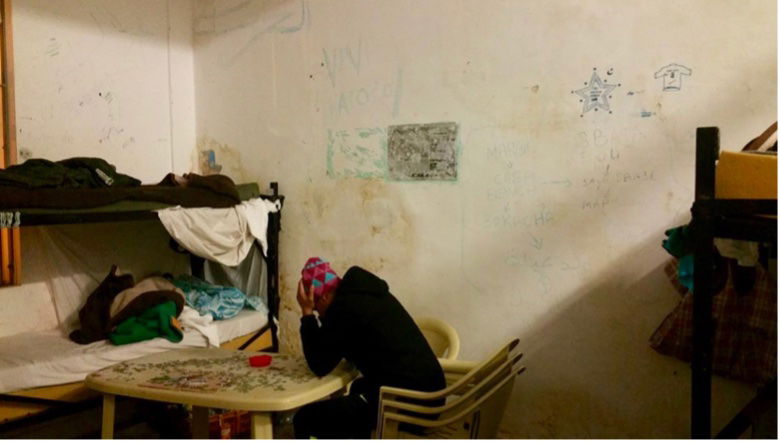
Introduction
UNHCR states that there are about 166,000 immigrants in Greece which consists of approximately 112,000 refugees, 4,700 stateless people, and 49,000 asylum-seekers in the official data. The UN Refugee Agency report shows that the majority of the population belongs to the Syrian Arab Republic (42,793) while the second major group was from Afghanistan (39,870) who live in Greece, in 2022. According to the Ministry of Migration and Asylum in Greece, for the first time, the number of asylum seekers living in the Aegean islands has dropped below 10,000 after six years of the refugee crisis. Furthermore, the total number of immigrants across Greece decreased by 40% in 2021 which is considerably lower than the previous years.
In 2019, many refugees, mostly Afghans were transferred to mainland camps from the Aegean islands’ overcrowded hotspots and the Skaramagkas refugee camp. Corinth refugee camp is one of those camps established as a transit refugee camp and located next to the Corinth pre-removal detention center. The camp is very close to the city center which makes the place different from the other mainland camps. It is two hours away from Athens and Patras (around 100 km) and on a dusty field between Corinth city and country road. Due to the increasing number of Covid-19 (Corona Virus) cases, a team from the Medical Association of Corinth visited the camp to intensify and tighten the measures, as well as record the needs on both sides of the walls in October 2019. They reported the essential needs of the camp including an efficient cleaning area, and an official clinic, and the inadequate living conditions in the area were considered insufficient for a decent living standard. Also, they reported that the camp is located on the soil which may threaten the health of residents.
Although the position of the camp is very close to the city center, the camp is an isolated place where refugees reside in marquee-style rub-hall tents which consist of 14 rooms. Each room is 10 square mater and with an official capacity of 672 people, but people many more. It is very difficult to know the exact number of people living there due to the lack of official records. Besides, there is an unclear number of residents who are not registered and unofficially entered the camp by themselves. Still, many refugees are forced to transfer to Corinth by their eviction from refugee squats and to live there under dire conditions for an indefinite period. In the camp, one family has the right to live in one room, depending on the number of family members, big families may have two rooms where each room contains a bunk with two sleeping beds.
This study presents the interviews about refugees’ sense of identity and diversity, difficulties, and discrimination episodes of lived experiences by other refugees, and carried out by seven refugees who have lived in Corinth Refugee Camp in July 2021. During the interviews, the participants were invited to talk about their sense of identity both as an individual and as members of the refugee community, analyze their living conditions and difficulties in the Corinth transit camp, and report about discrimination episodes experienced by other refugees, and as well as to talk about the diversity of identities in the camp. To guarantee the anonymity of refugees, participants agreed on using a pseudonym.
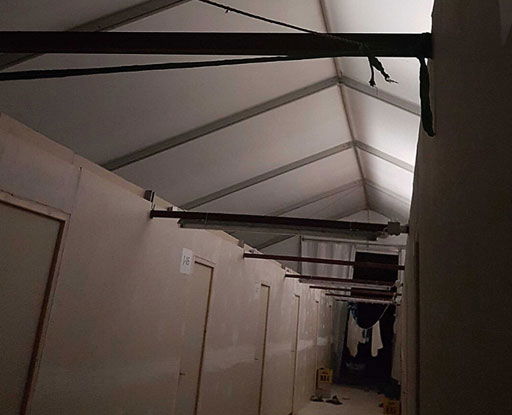
Figure 1 Inside the rub-halls
Thus, the present study aims to shed light on previous research on refugee identity and focus on deficiencies that tend to narrow down to the undifferentiated refugee identity by ignoring multiple axes of individual identity in a refugee camp.
Life in the Camp Distant from Safety
In the camp, all rub-hall tents look the same with mixed populations, but refugees are placed in the tents considering their ethnicity and race. So, the placement was simply based on the division of Kurds, Arabs, Afghans, and Africans. This was not an effective solution, however, to the discrepancy of refugee groups in the camp. Many refugees described the camp as an area of fights 1011, tension, unsafe conditions, and noises at all hours.
For example, Behman indicated the concept of being safe was related to the security of one’s personal belongings. Then, he mentioned one theft case that happened a few days before the interview day:
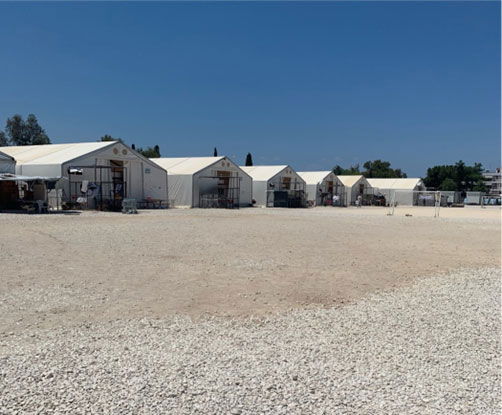
Figure 2 Corinth Refugee Camp, 12.08.2021
“I think nobody is safe here. Because you have to see the camp, the windows, the walls... how would I live with family, how would I feel safe here? I am not scared of course but nobody would feel safe inside the rooms. Because there are many thieves. For example, yesterday, a thief entered our friend’s house in the early evening...”
Muhammed is another refugee who has been living in the camp since 2019. He is not able to hear and talk due to his disability. When I first met him, we decided to talk by writing on a paper, then, he taught me basic sign language and it became easier to communicate with him in my last days. He is a refugee from the Gambia, and he was born deaf and mute. His family did not accept him with his disability. He grew up in the child welfare service. He started to look for a job when he turned 18 but it was quite difficult to find a job with his disability, so he decided to come to Europe for a more secure job and higher quality living standards. He requests a sign language interpreter from Greek authorities, however, the bureaucratic process caused him to wait for it for two years. Additionally, he felt unsafe unless he kept quiet and calm:
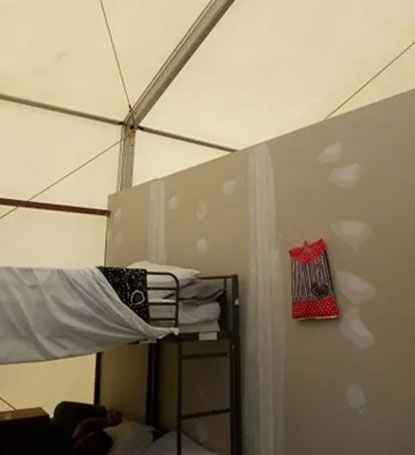
Figure 3 Inside the rooms with a bunk bed
“I saw the people fighting and I stopped them. They didn’t listen to me, and they threw a stone at me. My mistake was not being careful of myself. You know, the camp is not safe and Afghan people throw stones at black people... Then, people called the police, and the police came to the camp...”
Then, he said that police considered him on the side of the black people because of his skin color. The police accused him of being a part of the fight and did not start an investigation related to his injury. Through the race, Muhammed experienced unfair accusations and exclusionary practices and was not able to express himself to prove his innocence to the police. On the other hand, there were occasional fights due to ethnic and religious differences among refugees almost every night:
“The fight is mostly between Afghan and Hazara people or Afghan and Arab people. For example, we all speak Persian, but the cultures are different, there are different kinds. That’s why the fights start... basically, they say ‘we are good, but you are not’ ... many times the reason is sects of Islam. I couldn’t sleep many nights because of those fights... it starts with discussion but a few days after, if they catch you alone, they beat you somewhere else.” (Behman)
Likely, Hozan observes the fights mostly occur related to religious discussions:
“Once, I said to people that we are Yazidi, and we are victims. And he said, ‘no, you are lying, there is not such a thing. There is only one religion which is Islam, no other beliefs are real.’ And I could not say anything... If I tell my opinion and if I make a comment about religion, they may discriminate against me.”
Additionally, the people who do not belong to the major sect of Islam, are claimed to be atheists:
“If there is a fight, Arab people were yelling ‘Allahu Akbar’ ... they see all the Kurds lack of religion. They see us atheists or ‘kafir’. I am like that (atheist) but not my friends. And the fight was coming out from a senseless point every time, but the Arab people were turning it out related to religion. They were saying ‘the people (Kurds) don’t like the God, they are kafir, they are atheists.’”
Women refugees particularly expressed their sense of unsafety when they would leave their rooms for going to the toilets which are located outside of the rub-halls. Sebnem and Fatima complained about the unsafety of the camp at night. They were feeling unsafe when they would go out of their room to the toilet at night. They both had to be accompanied by either their fathers or mothers to the toilet. Moreover, Sebnem mentioned the other people and their lifestyle in the camp: “I don’t feel safe. I go out of our room for the toilet only with my father during the night. There are many single men, and they drink so much alcohol. I cannot feel safe in this camp”. Likely, Fatima indicated her hesitations and unsafety as a female refugee in the camp: “Also, when I go for a walk in the camp with my friends, I fear that if someone will take my hand and will do something to me”. I asked them if there is any harassment, abuse, or violence cases that they have witnessed or heard in the camp which was committed against a female refugee. The question was met with suspicion and reluctance. They refrained from giving out more information on the subject, and they preferred to talk about it after the interview. However, they did not consent to mention those stories to be involved in the present study.
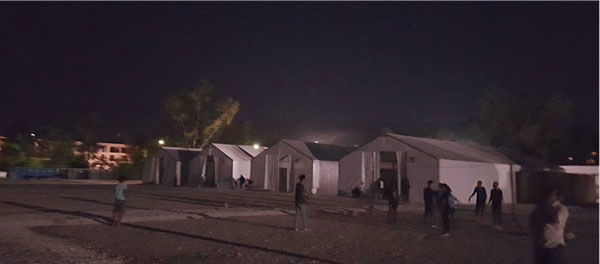
Figure 4 Refugee camp during the night
In addition to their stories, Sebnem mentioned a case of violence against a woman committed by her husband in the camp. According to her, it is an often-repeated problem:
“One couple was fighting. Police came and intervened in the fight. It happens in the camp. The woman’s husband was drinking alcohol and beating her up every day. That’s why the woman reported him to the police. However, a couple of weeks after, they got back together because they have two children.”
Moreover, many of them suffer from mental health issues and are prescribed medicines. As all of them have been through traumatic experiences in their pre-migration periods, they mainly have needed psychological support. However, Corinth camp has neither a psychiatrist nor a psychologist. Instead, residents have to go to the local hospitals. In the hospital, there is no opportunity to take continual therapy sessions, so most of the refugees are prescribed medicines after they briefly explain their problems to the doctors: “They give me medicine all the time. I see the young people here (in the camp), they all use medicines. Although there is an establishment of a clinic inside the camp, it is open for a few hours a day and only assists the urgent and basic needs of the people. Therefore, refugees have been forced to go to the local hospital which is 2,5 km away from camp, or the hospitals in Athens for more specialized clinics. Furthermore, many of them face a language barrier since many Greek doctors refuse to speak in English with refugees or use translation apps, so they are forced to search for a paid interpreter many times.
Lack of Essential Facilities
Jason Hepps, the Deputy Representative of UNCHR, visited Greece on May 2021 and congratulated the local authorities for their refugee policies for the locals. He mentioned that many vulnerable asylum seekers “found a safe home with decent living conditions with the support to maintain their hopes and dreams for the future”.
Additionally:
“At a time of strong pressure on Greece to respond to increased refugee needs, municipalities, and its people were among the first to show what solidarity means in practice. They showed the way to ensure towns were safe spaces where no one is left behind or forgotten and where everyone can live in safety and participate meaningfully in the community.”
Whilst the mainland camp was established recently, the living conditions, security, distribution of essential items, and facilities were not sufficient for refugees. A rub-hall that is divided into 14 rooms structured by thin woody walls, furnished with a small sink and cupboard at the entrance, bunk beds, also a small cooker in the few rooms. There is only one tent to be used as a kitchen designed with cookers, commercial-type refrigerators, and broken ovens. However, one refrigerator belongs to one rub-hall, so each room has only one shelf in the refrigerator. Many refugees claimed that their food does not fit on the shelf of the refrigerator, for this reason, they eat canned food almost every day. Moreover, refugees have many problems with using the common areas and functional problems with electronics:
“They steal our pans and pots sometimes or change their places. I feel bad and disturbed those times. Everyone uses the same kitchen and ovens; cookers are broken sometimes. Therefore, many people cook in their homes. For example, there is no oven in the camp now, all are broken. Nobody can bake bread.” (Sebnem)
On the other side, they reported problems with washing machines that half of them are broken and there is a long queue where both men and women wait for washing their clothes. Also, there is no place to dry their clothes. Due to the queue, they used to wash them by hand and hang them on the barbed wire that surrounds the camp area.
On the left side, the wall was damaged in a fight between two refugee groups. On the right side, there is a “Masjid”, a place of prayer for Muslims.
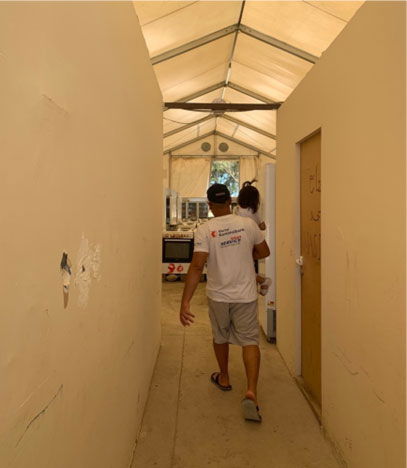
Figure 5 The entrance to the kitchen
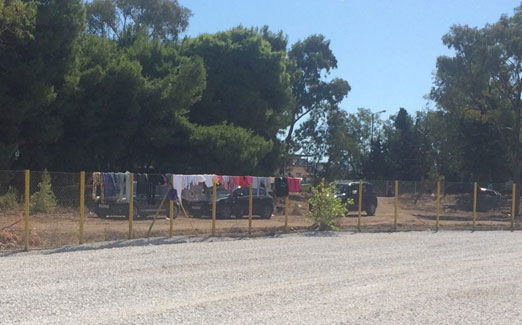
Figure 6 Hanged clothes on the barbed wire
In October 2019, refugees protested dire living conditions (poor quality of food, lack of essential facilities, access to schools, and health care on-site) and rising violent incidents among the residents of the camp. A few days after the protest, a fight broke out for unknown reasons on the food line, and three Afghan refugees were injured and hospitalized. After the intervention of the police in the fight, two people, one from Syria and the other one from Algeria, got arrested and sent to a detention camp next to the Corinth camp. Besides, the people in the detention camp live under dismal conditions where 14 people stay in one room and barely find food. It is not allowed to visit the camp and the refugees there. Some organizations supply food and clothes by throwing packages on the wall. The center is defined as a “jail” by people living there where they have only cold water, no sufficient blankets and clothing to protect them from the cold, and no healthcare and cleaning service. In 2021, one Kurdish asylum seeker (24-year-old) from Turkey, who had been living in the detention camp for more than 17 months, committed suicide after Greek authorities decided to prolongation of his detention. His body was found in one of the toilets hanging on his neck. After the suicide, protests started by firing mattresses, and throwing stones and other flammable materials at firefighters and police. According to the news coming from refugees in the center, a week before his suicide, another Kurdish man committed suicide and got injured. However, no news was published and was known about this case.
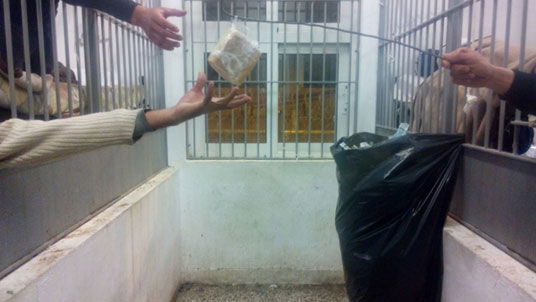
Figure 7 Refugees sharing their food in the detention center
Conclusion
Through all interviews carried out with the residents of Corinth transit camp, there is a marked gap between the speeches of government officials and the refugees’ testimonies about the events within the camp and the living conditions. Here, the refugees’ lives are stuck in an isolated, unstable, insecure, and unsafe place, with endemic violence for an indefinite period. First and foremost, it is a fact that refugees face multiple risks and threats against their mental and physical health, as well as discrimination, which limits the expression of their identities. Pre/post-migration periods, they face these risk factors, which entitle them to flee from their home countries and apply for asylum and protection in Europe, yet these risk factors are not reduced in the post-migration but are reformed in the host countries. Moreover, the threats highlight the risks, insecurity, and unsafety in their settlements in the Corinth refugee camp. Most of the fights, suicides, and incidents that happen in the camp are recorded in a different way than the realities of the victims’ experiences, and the overall effect is to trivialize the survivors’ experiences and minimize their importance. The daily traumas are much more intense than what we watch on television, read in newspapers, or see on the internet posts.
This study emphasizes a great awareness of the vulnerability of refugees residing in the Corinth camp and their need for the establishment of adequately secure lives. However, the contemporary situation in camps has become increasingly precarious for refugees in ways that blur and reshape not only the refugees’ futures but also their identity constructions and group belongings. Moreover, both the Corinth refugee camp and detention camp have been a significant example of a lack of essential services, lack of security, and inhumane living conditions for the last few years. The current approach to refugee protection in this case study is far from one which considers human dignity and the sense of being at home, contradicting the statements of the UNHCR where safety and solidarity are claimed to be put into practice. The humanitarian crisis in Greece is forcing us to rethink the present approach to the structure of camps and their impact on human life whether it is a newly established transit camp or a previously organized detention center.
Berfin Tutku Özcan
[ottobre 2022]
Berfin is a second-year master’s student of I-CONTACT at the Department of Cultural Heritage of the University of Bologna (Ravenna Campus). He completed his bachelor's in International Relations at Ege University, Turkey, in 2019. Meanwhile, he studied second bachelor’s program in Sociology at Anadolu University, Turkey. His research interests involve intersectionality, migration studies, and social movements. His master thesis is based on fieldwork that he conducted in Corinth Refugee Camp, in Greece, in 2021. It discusses the role of intersectionality in migration studies on a daily basis and offers a critical approach to the deficiency of migration discourse which emphasizes the refugee identity as an undifferentiated, essentialized, and universal category.
Foto: credits Berfin Tutku Özcan